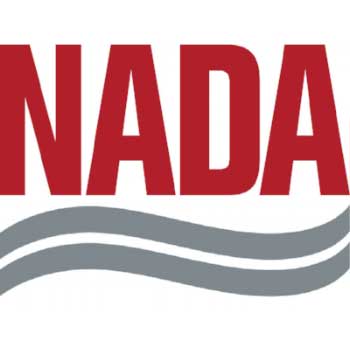
New FTC Rule Harms Car Buyers: Cosponsor the “FTC Redo Act” (H.R. 7101/S. 3014)
The FTC’s Vehicle Shopping Rule (VSR) would overwhelm car buyers and small business dealers with needless additional costs, paperwork and a lengthened sales process. The FTC finalized this rule despite significant process flaws and a lack of credible data-driven analysis. NADA supports FY25 appropriations language that would temporarily stop the FTC from spending funds to enforce the VSR (H.R. 8773) and legislation to stop the VSR and require the FTC to follow essential steps to ensure the Rule is the result of an informed process if it chooses to “REDO” the Rule (H.R. 7101/S. 3014). A new study by the Center for Automotive Research (CAR) found that the Rule would cost more than $24 billion (over 10 years), add an additional 60 to 80 minutes to the car‑buying process and cost consumers at least $1.3 billion per year in lost time. Members of Congress should cosponsor the “FTC REDO Act” to stop the flawed VSR and ensure if the FTC opts to redo its Rule, the agency must follow essential regulatory safeguards to avoid needlessly imposing significant burdens and costs on consumers and small business dealers.
Click to view the Center for Automotive Research Study
Support Legislation To Stop EPA’s de Facto EV Mandate Which Goes Too Far, Too Fast (H.R. 8998 and H.J. Res. 136/S.J. Res. 75)
NADA supports legislation that would slow down or stop the EPA’s de facto electric vehicle (EV) mandate which goes too far, too fast and ignores real-world consumer demand for EVs. NADA supports FY25 appropriations language that would temporarily stop the EPA from spending funds to enforce the EPA’s overly aggressive EV Rule (H.R. 8998) and legislation to disapprove the EPA’s de facto EV mandate (H.J. Res. 136/S.J. Res. 75). The Administration’s regulation could effectively require 56% of car sales to be electric by 2032. However, the charging infrastructure is not ready, the current incentives are not sufficient, and high EV prices will price out millions of consumers, particularly low-income Americans, from the new-car market. Congress should stop EPA’s de facto EV mandate, which will result in a new vehicle market that is unaffordable and does not meet the transportation needs of average Americans.
Oppose So-Called “Right to Repair” Legislation (H.R. 906)
NADA opposes so-called “right to repair” legislation (H.R. 906) which has little to do with repairing a vehicle and raises serious vehicle privacy, security and safety issues for consumers. Advocates for “right to repair” legislation claim that independent automotive repair shops do not have access to the parts or data necessary to repair vehicles. However, this concern was rectified by a 2014 Memorandum of Understanding, signed by “right to repair” proponents and auto manufacturers. Today, the information independent shops need to repair vehicles is readily available from every auto manufacturer. This legislation would also give any third-party remote, bidirectional access to consumer data from vehicles, which raises significant privacy, cybersecurity and automotive safety concerns. H.R. 906 is built on a faulty premise that independent repair shops are at risk, even though these businesses perform more than 70% of all non‑warranty repairs. Members of Congress are urged not to cosponsor or vote for H.R. 906.
Fight Catalytic Converter Theft: Cosponsor the Part Act (H.R. 621/S. 154)
NADA supports catalytic converter anti-theft legislation, the “Preventing Auto Recycling Theft Act” (PART Act) (H.R. 621/S. 154), which would help law enforcement combat this crime by providing a national framework that would mark catalytic converters, establish federal criminal penalties and create a more transparent market that deters its theft. Catalytic converters are being stolen at increasingly higher rates due to their valuable metals, such as rhodium, platinum and palladium. The number of catalytic converter thefts increased by nearly 900% between 2019 and 2023. Stolen catalytic converters can garner $20 to $350 on the black market, with the replacement cost to vehicle owners averaging over $2,500. These thefts are costing businesses and vehicle owners millions of dollars. The urgency of addressing this issue has risen as these thefts have increasingly turned violent, with some victims sustaining injuries and even losing their lives when confronting thieves. NADA and 120 other organizations sent a letter to congressional leaders urging passage of the PART Act in August. Members of Congress are urged to cosponsor the PART Act to address the growing national problem of catalytic converter theft.









